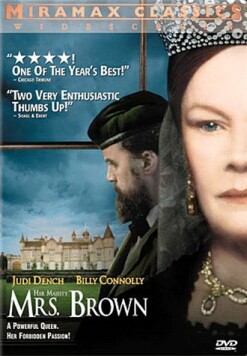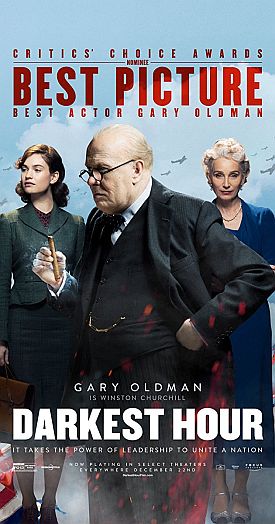Mrs. Brown
Mrs Brown written by Jeremy Brock, directed by John Madden and
starring Judi Dench as Queen Victoria and Billy Connolly as her servant, John
Brown, is a Masterpiece Theatre costume drama, based fairly faithfully on true
events, which has found its way onto the big screen and manages, in spite of all
expectations, not to look lost there. This is partly owing to the excellent
performances of the two principals, and of Antony Sher as Disraeli, and partly
to the skill of the story-telling and the beauty of the photography. Most of the
latter was shot on location at the royal residences of Osborne House on the Isle
of Wight and Balmoral Castle in Scotland.
The story is of the transformation of the
Queen’s household by the arrival there
in 1864 of Brown, who had been a gillie, or hunting and fishing servant, of her
late husband, Prince Albert, in Scotland. He has come ostensibly to look after
the Queen’s pony, but he swiftly finds
that she requires a much more important service from him, namely the deliverance
of herself and everyone around her from her imprisoning grief over the
Prince’s death. She has kept herself
shut away from the world for three years already at this point with a seemingly
inflexible will, though in fact she is simply paralyzed by the loss of someone
she had come to rely on so much. Brown realizes this and he proceeds to bully
her out of her misery and paralysis by acting as the Prince himself would have
done with her. Soon, Brown is helping her on to her pony by saying
“Move your foot,
woman!” And, to the horror of her
largely sycophantic advisers and attendants, she moves it.
To the gentlemen of her household, Brown is a mere servant, and a Scotsman
to boot, but it is his manly willingness to take her in hand which is all that
matters to the queen. To her mind he in effect assumes a
husband’s place. Hence the
film’s title, taken from
Disraeli’s sardonic description of Her
Majesty behind her back—though the film is mercifully reticent about the
possibility of any sexual relationship between them. Naturally, he makes enemies
of Sir Henry Ponsonby (Geoffrey Palmer), who had had the management of the
Queen’s affairs before he came on the
scene, and of the Prince of Wales (David Westhead), whose access to his mother
he limits as strictly as anyone
else’s. Disraeli, however, is a more
subtle figure and realizes that
Brown’s disingenuousness and genuine
concern for the Queen’s well-being can
be of use to him, even though, oddly enough, he finds himself as much on the
side of the Queen’s well-being as
Brown.
The best and most memorable scene comes when Brown drives the Queen to the
rather distant house of Bob Grant, a former fellow-gamekeeper on the royal
estates, where she is treated (as much as possible) as an ordinary person, even
helping to set the table for dinner. This is obviously the first time she has
ever performed such a simple domestic task, and at one point Brown has to give
her a signal about where to put the spoons. They come back later than expected
and rather flushed from the fresh air and perhaps the drink. Sir Henry Ponsonby
and Dr. Jenner are first shocked that she has come back late, then even more
shocked that she must be
“drunk”—until
finally it dawns on both that the
Queen’s flush might be owing to
something else.
“Don’t
even think about it,” says one to the
other.
This is the nearest the film gets to displaying any prurient interest in the
story, which seems to me almost a miracle of restraint in this day and age.
Instead it carefully interweaves the complex personal and emotional relationship
between the two with the considerations of political and state affairs with
which it is inevitably bound up. Perhaps the most revealing moment comes when
Brown offers to resign her service, and the Queen is forced to beg him to stay.
“Promise me you
won’t let them send me
back,” she says, referring (I suppose)
to the obsequious management of her grief Sir Henry and others used to control
her before Brown came and bullied her into living again. Perhaps the
estrangement which ensues upon Brown’s
risking his credit with her by persuading her back into public life in 1868 does
not emerge with quite sufficient sharpness, but the general outline is clear
enough, and the ending touches just the right note.
A film well worth seeing.
Discover more from James Bowman
Subscribe to get the latest posts to your email.







